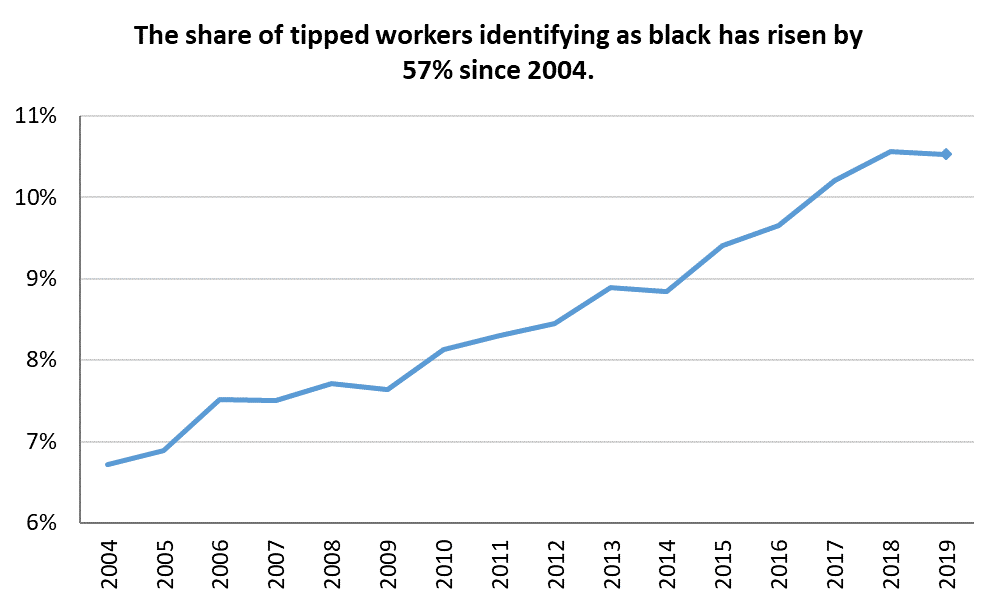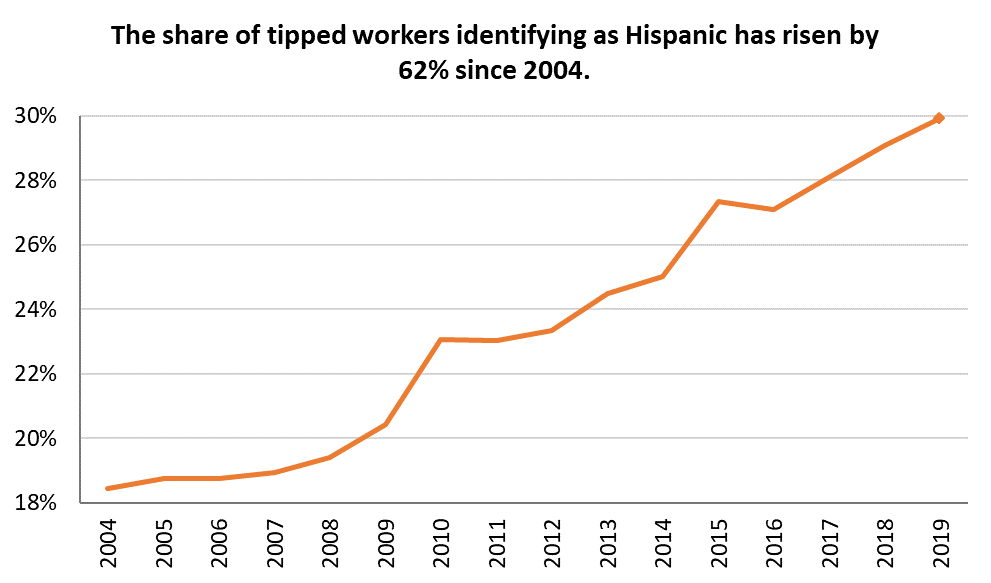In the fight to save state and federal tip credits, restaurant workers have rallied to support the traditional tipping system, saying their tips allow them to earn far beyond the regular minimum hourly wage. Analysis of Census Bureau data shows the average server in 2020 made $15.51 per hour, and many restaurant servers and bartenders report earning more, up to nearly $30 per hour (or beyond) with their tips.
Now, new analysis of Census Bureau data finds that the share of non-white tipped workers is on the rise – meaning more black and Hispanic workers have access to these earning opportunities.
Tip credit opponents have launched attacks against this system, including the claim that non-white restaurant workers don’t have access to tipped work opportunities, as they more often work as part of the non-tipped kitchen staff. In a recent Morning Consult op-ed, Thompson Hospitality chairman Warren Thompson articulates the history of certain restaurant owners who engaged in racist hiring, but also argues that in restaurants of today, non-white workers have gained more access than ever to the high-paying job opportunities that tipped restaurant jobs provide.
Looking at American Community Survey data from 2004 to 2019, the share of tipped jobs held by black and Hispanic workers has risen rapidly. The share of black workers in front-of-house jobs, including waitstaff and bartenders, has grown by 57 percent since 2004.

In similar fashion, the percentage of Hispanic workers in these tipped positions has grown by 62 percent over the same period.

Restaurant employees have fought for the traditional tipping system across the country (in places like Maine, New York, Virginia, New Mexico, and the District of Columbia) because it gives them high earning potential. Even over the last two decades, the share of minority workers taking advantage of these opportunities has been rapidly growing.
Economists from Miami and Trinity Universities projected that the federal Raise the Wage Act proposal, which would remove the tip credit and mandate a $15 tipped minimum wage nationwide, would cut nearly half a million jobs for non-white workers.
Ending the tip credit, a practice that allows employers the ability to manage costs while employees gain access to substantial tip earnings, would cost hundreds of thousands of nonwhite workers earnings, and possibly their jobs.
